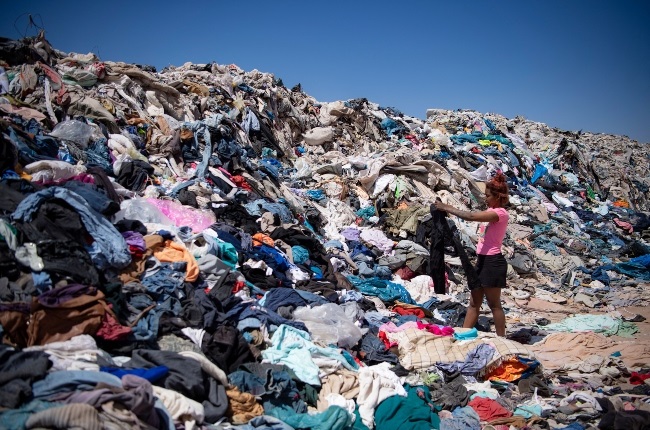The apparel industry accounts for 10% of global greenhouse gas emissions; less than 1% of clothing is recycled currently, leading to increasing landfill and pollution. As 2030 has been set as the target year for full circularity in the EU market, the European Parliament has approved the Corporate Sustainability Due Diligence Directive, which is set to foster sustainable and responsible corporate behaviour throughout global value chains.
With 600 votes in favour, 17 against and 16 abstentions, the EU Strategy for Sustainable and Circular Textiles calls for textile products sold in the EU to be more durable, easier to reuse, repair and recycle. It states their production should respect human, social and labour rights, the environment and animal welfare throughout the supply chain.
Moreover, the members of Parliament (MEPs) state they want EU and national measures to put an end to “fast fashion” with a call for the ban on the destruction of unsold and returned textile goods.
It says MEPs want clear rules to stop greenwashing by producers, through for example the ongoing legislative work related to ’empowering consumers in the green transition’ and ‘regulating green claims’.
MEPs also want the upcoming revision of the Waste Framework Directive to include specific separate targets for textile waste prevention, collection, reuse and recycling. They urge the Commission to launch the initiative to prevent and minimise the release of microplastics and microfibres into the environment, without further delay.
The EU Commission initially presented the EU Strategy for Sustainable and Circular Textiles on 30 March 2022 to address the entire lifecycle of textile products and propose actions to change how we produce and consume textiles.
The move is part of the EU Green Deal which proposes to make sustainable products “the norm in the EU”, boost circular business models and empower consumers for the green transition.
As announced in the Circular Economy Action Plan, the Commission is proposing new rules to make almost all physical goods on the EU market more friendly to the environment, circular, and energy-efficient throughout their whole lifecycle from the design phase through to daily use, repurposing and end-of-life.
Manufacturers will have to ensure their clothes are eco-friendly and long-lasting and consumers will be given more information on how to reuse, repair and recycle clothing.
Products may only be sold if accompanied by a ‘product passport’, containing accurate and up to date information. This passport would enable consumers and businesses to make informed choices when purchasing products, facilitate repairs and recycling, and increase transparency about the environmental impact of what they are buying.
Members of European parliament (MEPs) want consumers to be able to compare product passports through an online platform.
Economic operators which destroy unsold goods would have to report the annual number and percentage of products they discarded as well as their reasons why. Based on this information, MEPs want the Commission to identify products for which a destruction ban should be introduced.
MEPs want the Commission to prioritise a number of product groups in its first working plan to be adopted within three months after the entry into force of the new rules. These priority products include textiles (notably garments and footwear), furniture, tyres, detergents, paints, lubricants and chemicals.
European policy makers have laid out ambitions to end fast fashion. The proposed regulations will change the entire industry.
The European Parliament says that by adopting this report it is responding to citizens’ expectations to build a circular economy by promoting sustainable EU products and production, and to support the shift to a sustainable and resilient growth model.
Reaction:
Industry bodies including France’s Fédération de la Haute Couture et de la Mode, Italy’s Camera Nazionale Della Moda Italiana and the UK’s British Fashion Council have spent the last year considering the potential impact on the sector they represent. They’re not entirely happy.
Some of the planned regulations could dent the industry’s competitiveness and stifle creativity, according to a new position paper published by the European Fashion Alliance, a coalition of fashion councils formed last June to lobby on behalf of the fashion industry.
While Euratex says it supports the EU Textile Strategy, it believes despite the efforts outlined to step up the EU’s ambition towards sustainability and circularity the report fails to recognise the strategic role of the European textile industry to scale up sustainability. The report also does not take into consideration the global competitive threat which companies in Europe are currently facing.
Director General of Euratex, Dirk Vantyghem, explains: “Developing a new business model for our industry requires carefully crafted legislation at the global level, and an open dialogue between the industry, the brands and the consumers.”
Putting the bar even higher will simply mean that the European textile industry will be pushed out of the market, resulting in a bigger environmental footprint and increased dependency on foreign supplies. Quite the opposite of what the EU wants to achieve with its open strategic autonomy plans.
It puts a strong responsibility on the supply side – the industry and the brands – and does not sufficiently address the role of the consumer. Such initiatives therefore need to create a stronger demand for sustainable textiles, which includes better communication and transparency (avoid greenwashing), fiscal measures, green public procurement and better control of online marketplaces.”
However, Euratex believes the report does recognise the importance to invest in research and innovation, to support reskilling and upskilling, the need to scale up the circular economy and pay attention to the needs of SMEs.
Indeed, the European Commission’s proposal risked shifting responsibilities from bigger to smaller players in the supply chain, and was also deviating from existing global due diligence guidelines such as the UN Guiding Principles on Business and Human Rights (UNGPs) and the OECD Due Diligence Guidance for Responsible Supply Chain in the Garment and Footwear Sector.
As a next step, trialogues are expected to commence soon, namely the negotiations between the European Parliament, the European Commission and the Council of the European Union.

